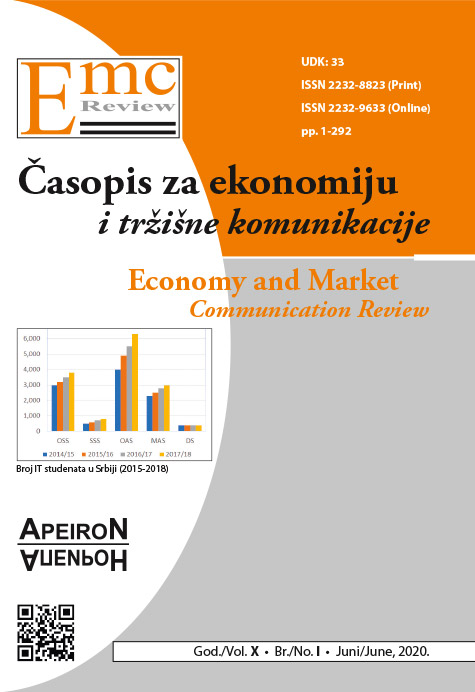Innovation as an Initiator of Economic Development
DOI:
https://doi.org/10.7251/EMC2001230NAbstract
Science and technology are the main drivers and key factors of economic and social development. There is increasing talk of a knowledge-based society and economy based on creativity and innovation. Therefore, technology transfer is seen as the development, transfer and acquisition of new knowledge, techniques, technologies and the basis for technological advancement. In the innovation literature, one can most often find that innovations create something new in order to meet certain needs for which there is market demand. However, I think this needs to change, especially in young people's views. Namely, it has long been known in marketing theory that it is defined that people's needs are created, not that the needs of consumers are addressed, so that the market meets their needs. Kotler made it clear that it was best to create and impose the product on consumers as a need on the first level of Maslow's theory of the hierarchy of needs. Authors Montonen and Erikson presented a new way of teaching and learning about innovation, through work that was prepared as a case study for six years, with a focus on the product-oriented industry. From this perspective, the main task of teaching and learning about innovation is to provide hands-on competence, based on understanding how and with whom it should be done, what types of activities, tasks and routines to perform, what are the bold moves, emotions, knowledge , competencies, norms and values embraced by innovation.
This paper will outline the theoretical bases on innovation, will outline basic typologies of innovation, sources of ideas as potential drivers of change, and the importance of innovation in the economic development of a country. Innovation is the basis of advancement and the driving force behind the development of every economic area in one country. When looking at the typologies listed above, it can be concluded that the basis of innovation and sources of innovation can be all aspects of the business of one company, and that innovation is "born" not only in the R&D department but also in other organizational units. Certainly it is necessary to distinguish creativity from innovation, though new innovations are born through the process of idea creation. Ideas sources can be customers, distribution channels, and existing products and services. Innovation learning needs to be changed, from a theoretical point of view, to focus on practical competencies, which are based on an understanding of how innovation should be put into practice. Of course, the theoretical and scientific basis must not be neglected, but it is imperative that the emphasis of the study be shifted from the theoretical point of view to the involvement of young people in practical examples that frame the required knowledge of innovative endeavors.
